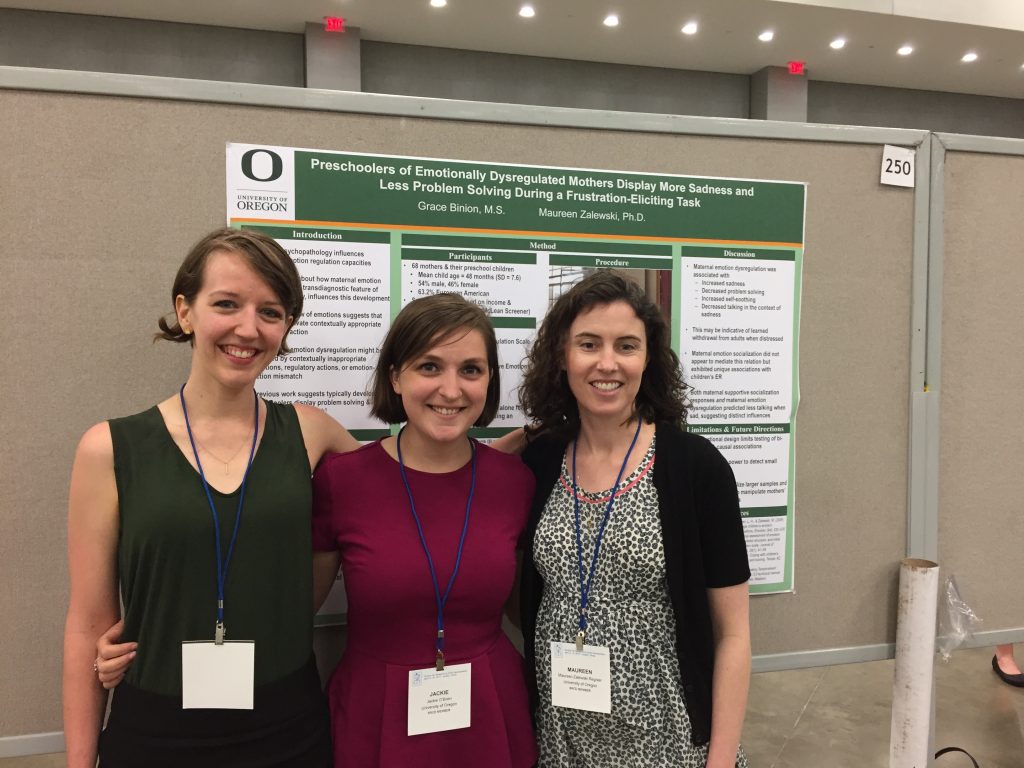 Jackie O’Brien was awarded a training fellowship through the NIH-funded Oregon Students Learn and Experience Research (OSLER) TL1 program! The OHSU-based OSLER TL1 program provides graduate and post-doctoral training in clinical and translational research including basic science, behavioral science, social science, and public health.
Jackie O’Brien was awarded a training fellowship through the NIH-funded Oregon Students Learn and Experience Research (OSLER) TL1 program! The OHSU-based OSLER TL1 program provides graduate and post-doctoral training in clinical and translational research including basic science, behavioral science, social science, and public health.
Jackie will be mentored by Maureen Zalewski and OHSU professor Anna Wilson. Her OSLER fellowship will expand her training in dual generation research approaches that focus on physiological mechanisms, allow her to gain experience in an academic medical center working with patient populations, and complete formalized training in translational science skills.
Congratulations Jackie!

